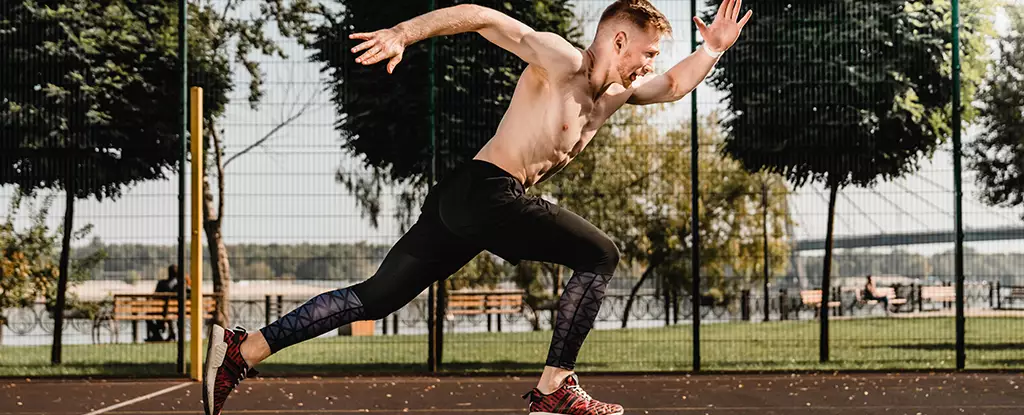In recent years, the fitness industry has glorified high-intensity workouts, presenting them as the ultimate solution for maximizing health and performance. However, burgeoning research is calling this paradigm into question, revealing potential vulnerabilities in the immune systems of those who engage in extreme physical exertion. A 2023 study focusing on firefighters sheds light on this alarming trend, suggesting that the very activities designed to bolster health may, for some individuals, pose significant risks to their wellbeing.
Insights from First Responders
Conducted by scientists at the Pacific Northwest National Laboratory, the study analyzed the effects of rigorous activity on the immune systems of 11 firefighters over the course of a demanding 45-minute exercise regimen. The results indicated a noteworthy decline in the levels of inflammatory molecules—essential components of the body’s defense against infection—immediately following intense physical activity. While this finding may seem innocuous or even beneficial at first glance, it reveals a nuanced and potentially troubling reality: those who push their bodies to the limit may inadvertently compromise their immune response, particularly against viral infections.
Ernesto Nakayasu, a biomedical scientist involved in the research, notes that “people who are very fit might be more prone to viral respiratory infection immediately after vigorous exercise.” This should serve as a wake-up call for not only professional athletes but also weekend warriors who prioritize performance over the body’s natural recovery processes.
The Sharp Contrast of Moderate Exercise
The discussion about vigorous exercise cannot overlook the mountains of evidence supporting the positive effects of moderate exercise on immune health over time. Regular, moderate physical activity is universally recognized for improving overall health, including enhancements to the immune system’s functionality. However, this latest research argues for a more differentiated understanding—one that nuances the long-held belief that ‘more is always better.’
Moderate exercise cultivates a flourishing immune system, while extreme exertion, as highlighted by this study, raises significant questions about immediate post-exercise immune functionality. This duality reflects the complexity of human biology and reveals that exercise, while a cornerstone of health, is not without its pitfalls.
The Biological Mechanisms at Play
Delving deeper into the biological consequences of intensive exercise, the study discovered fluctuations in critical components of the oral microbiome and increased levels of opiorphin—an endogenous peptide involved in pain regulation and the modulation of blood flow. This reallocation of resources signals a body in crisis mode, redirecting pathways typically devoted to immune response toward maintaining muscle efficiency and oxygen supply.
While the researchers propose that such changes might represent an adaptive mechanism to accommodate higher physical demands, the overarching trend appears concerning. The notion that some adaptive responses may place health at risk poses a paradox. It provokes essential questions about the balance between striving for excellence in performance and safeguarding fundamental health.
Questionable Protective Mechanisms
The study raises intriguing implications regarding the oral microbiome’s role following intense exercise. Despite increased levels of antimicrobial peptides in the mouth post-exercise, researchers found no significant protective effect against potential bacterial threats, namely, E. coli. Such findings illustrate the limitations of the body’s natural defenses under duress, reinforcing the theory that stress—whether it be physical, emotional, or environmental—can adversely affect immune functionality.
Critics of the interpretation of these results argue that there may be a distinction between immune suppression and a dynamic state of heightened vigilance. This contention begs further investigation, particularly in the context of specialized populations like firefighters who encounter unique environmental exposures and stressors.
The Need for Broader Research
While this research provides compelling results, its applicability is somewhat limited by the small sample size and the specific demographic—primarily healthy, male firefighters. For meaningful conclusions to be drawn regarding the effects of extreme exercise on immune health, further research is necessary across different populations, including variations in age, gender, and pre-existing health conditions.
In a world where the pursuit of health and fitness is equally celebrated and scrutinized, the findings of this study stand as a critical reminder that excessive physical exertion may not be the foolproof path to immunity and longevity often portrayed in mainstream fitness culture. The challenge now lies in balancing the fervent passion for peak performance with an unyielding commitment to health preservation, fostering a holistic approach to physical fitness that prioritizes long-term wellbeing as much as it celebrates immediate gains.


Leave a Reply